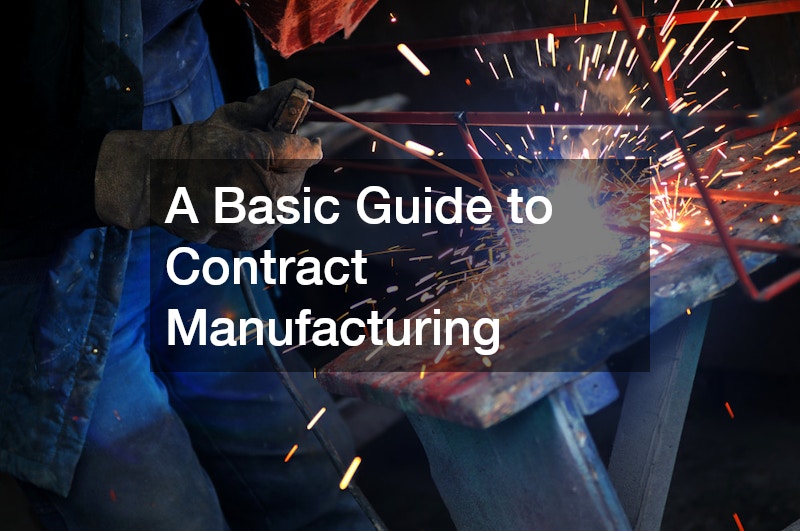This article serves as a comprehensive guide to understanding contract manufacturing, a crucial component of today’s global supply chain. We will explore the fundamentals, benefits, and considerations involved in contract manufacturing. Contract manufacturing is an integral part of how businesses produce goods at scale while maintaining cost-efficiency.
By delving into the following sections, you will gain a thorough understanding of what contract manufacturing involves and how it can impact various industries.
What is Contract Manufacturing?
Contract manufacturing refers to a business model where a company outsources its production processes to a third-party manufacturer. This allows companies to focus on core competencies such as design and marketing while the manufacturer handles production activities. The process involves detailed agreements that outline the responsibilities, standards, and expectations between the two parties. Contract manufacturing offers businesses the flexibility to manage production without investing heavily in infrastructure.
Contract manufacturers are primarily responsible for the production of goods while ensuring adherence to quality standards. They operate facilities equipped with the necessary machinery and workforce to produce goods on behalf of another company. These manufacturers often collaborate closely with their clients to meet specific production requirements, ensuring product consistency and quality. The role of a contract manufacturer extends beyond production, often including logistics and supply chain management to ensure timely delivery of goods.
Contract manufacturers deal with a diverse range of products, from electronics and apparel to pharmaceuticals and consumer goods. For example, many technology companies rely on contract manufacturers to produce components such as microchips and circuit boards. In the pharmaceutical industry, complex regulatory requirements make contract manufacturing an attractive option for producing medications and vaccines. These manufacturers can efficiently handle production demands across various product categories, providing scalable solutions for businesses.
Numerous industries leverage contract manufacturing to optimize production and manage costs effectively. The automotive industry often utilizes contract manufacturing for components and parts assembly to streamline operations. In the consumer electronics sector, companies like Apple partner with manufacturers in regions such as Asia to produce high-quality gadgets at scale. Additionally, the textile industry employs contract manufacturing to produce clothing and accessories, ensuring timely delivery to meet consumer demands.
How to Select a Contract Manufacturer?
When selecting a contract manufacturer, evaluating their quality standards is of utmost importance. Companies should assess the manufacturer’s certifications, such as ISO standards, which indicate adherence to quality management systems. Conducting site visits and audits can provide insights into the manufacturer’s operational practices and quality control measures. Maintaining high-quality production is crucial for businesses to uphold their brand reputation and satisfy consumer demands.
Another critical aspect of selecting a contract manufacturer is understanding their cost structures. Costs can vary significantly based on production volume, material sourcing, and labor rates. Companies must evaluate these components to ensure they receive competitive pricing while maintaining product quality. Transparent communication about pricing expectations can prevent misunderstandings and facilitate a smooth partnership.
Legal and regulatory compliance is paramount when choosing a contract manufacturer. Manufacturers must adhere to local and international regulations governing their operations, including environmental standards and labor laws. Ensuring compliance with these regulations helps protect the company’s reputation and avoid potential legal issues. Companies should work closely with manufacturers to ensure all products meet the necessary compliance standards, particularly in highly regulated industries.
Assessing a contract manufacturer’s technological capabilities is also crucial for selecting the right partner. Advanced technological resources, such as automation and precision engineering, can enhance production efficiency and quality. Companies should consider whether the manufacturer’s technology aligns with their production needs, as well as their ability to innovate and adapt to new trends. By partnering with technologically adept manufacturers, businesses can gain a competitive edge in their respective markets.
What Are the Benefits of Contract Manufacturing?
Contract manufacturing can lead to considerable cost savings due to economies of scale and reduced investment in infrastructure. By leveraging the manufacturer’s resources, companies minimize upfront capital expenditures while benefiting from lower production costs. Additionally, outsourcing production allows businesses to focus financial resources on other critical areas, such as research and development or marketing efforts. Contract manufacturing can greatly contribute to a company’s overall cost-efficiency strategy.
Scalability is a key advantage of contract manufacturing, as it allows businesses to increase or decrease production volumes based on market demand. This flexibility is particularly beneficial for companies experiencing seasonal fluctuations or uncertain market conditions. By adjusting production capacity without incurring additional costs, businesses can effectively manage their resources and reduce risk. Contract manufacturing agreements typically offer terms that support this flexibility, ensuring business continuity and adaptability.
What Are the Challenges Facing Contract Manufacturing?
Effective communication and coordination between parties are critical to successful contract manufacturing relationships. Miscommunication can lead to production errors, delayed timelines, and increased costs. Businesses must establish clear communication channels and regular check-ins to ensure alignment on project goals and expectations. Strong collaboration and timely feedback can significantly enhance the efficiency and effectiveness of the manufacturing process.
Quality control remains a key challenge in contract manufacturing due to the potential for variability in production standards. Ensuring consistent product quality requires rigorous oversight and monitoring by both the business and the manufacturer. Implementing comprehensive quality assurance protocols can help detect and address potential issues early in the production process. Building a strong partnership with the manufacturer can foster a shared commitment to maintaining high-quality standards.
Contract manufacturing offers many benefits but also comes with certain challenges. Being well-informed and prepared to address these factors will enable businesses to effectively leverage contract manufacturing for their production needs. By understanding the intricacies of this business model, companies can optimize production, reduce costs, and enhance product innovation. Ultimately, successful contract manufacturing partnerships can drive growth and sustainability in today’s competitive global market.








